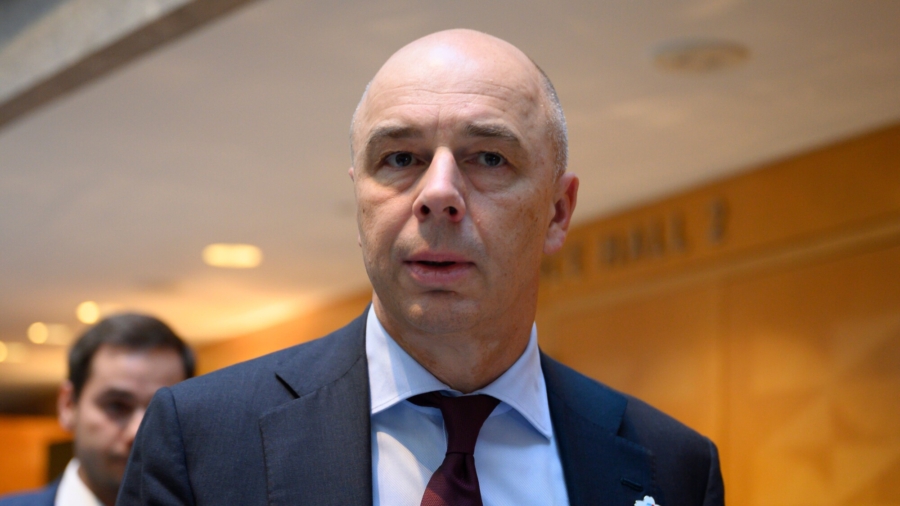Russia’s finance chief said Moscow is planning a new system for making foreign bond payments similar to the rubles-for-gas scheme in an effort to prevent a historic sovereign default after Washington ended a key sanctions exemption that raised Russia’s chances of defaulting on its debt.
Anton Siluanov, Russia’s finance minister, was cited by Vedomosti on May 30 as saying that the new system that is in the works would basically mirror the one in place that lets foreign buyers of Russian natural gas settle the transactions without falling afoul of sanctions.
In March, Russian President Vladimir Putin said Moscow would require “unfriendly” countries to pay for natural gas in rubles by opening several accounts at Gazprombank, then make payments in euros or dollars, which Russia’s settlement infrastructure converts into the Russian currency.
Siluanov told Vedomosti that the new bond settlement system would operate in much the same way, but “in reverse” and in a way that bypasses Western payment infrastructure.
Under the proposed new scheme, investors would be required to open a foreign currency and a ruble account at a Russian bank. Russia would then make the bond payments in rubles, which would be converted into foreign currency via Russia’s settlement infrastructure—the National Settlement Depository (NSD)—and transferred to the foreign currency account that bondholders can access.
“Now we are finalizing this mechanism, we will discuss it in the government. After that, we will come up with an offer to our investors,” Siluanov said, according to the outlet.
Siluanov told Russia-24 television on Friday that the new bond payment system would be in place for Russia to make its next coupon payments on bonds due June 23–24.
It comes as the United States pushed Russia closer to a historic debt default by not extending an exemption to sanctions on Russia’s central bank that allowed it to process payments to bondholders in dollars through U.S. and international banks.
Russia has around $2 billion in foreign currency bond payments due by the end of the year, with experts predicting some of those will be impossible to settle without the U.S. waiver.
Some experts have said that a potential Russian debt default would be largely symbolic, as sanctions prevent Russia from borrowing internationally anyway while budget surpluses mean it doesn’t need to.
“Major sovereign defaults tend to have some lasting consequences and economic difficulties. One thing that is different about this default: the sanctions have already isolated the Russian economy a great deal. So, in some ways, the implications might be largely symbolic,” Tim Samples, Associate Professor of Legal Studies, Terry College of Business, University of Georgia, told Russian state-backed media Tass.
The White House said last week it expects little impact on the U.S. and global economy from a potential Russian debt default following the Treasury Department’s Office of Foreign Assets Control (OFAC) announcement that it was not renewing the waiver.
“We expect the impact on the U.S. and the global economy to be minimal, given Russia has already been isolated financially,” White House spokesperson Karine Jean-Pierre said during a May 26 press briefing.
“That being said, Treasury Department continues to monitor and have conversations with global financial community,” she added.
Russia’s finance ministry and lawmakers said following the Treasury’s decision not to extend the exemption that Moscow would continue to service its foreign debt, with payments to be made in rubles.
“By artificially banning payments in dollars, Washington is trying to create problems for Russia,” said Chairman of the Russian State Duma Vyacheslav Volodin, according to Russia’s Interfax news agency.
“Our country has a solution to this challenge,” he continued. “We will pay in rubles.”
From The Epoch Times

